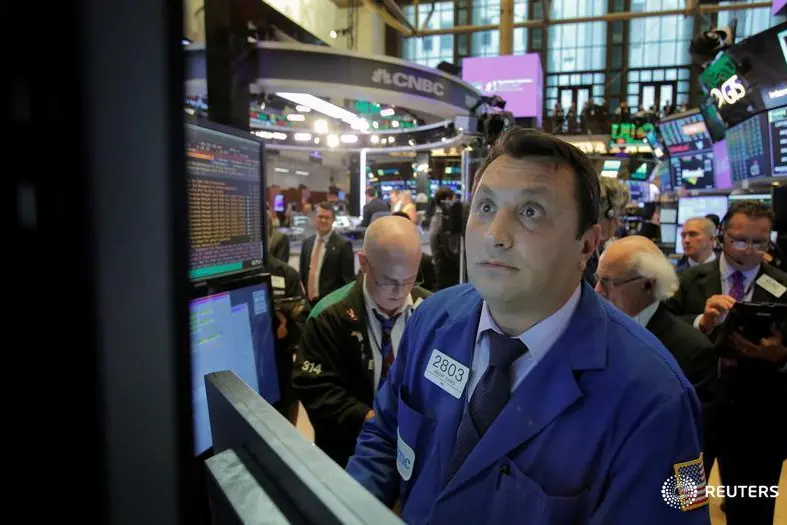PHOTO
LONDON - Carmakers are either extremely cheap or almost uninvestable. A profit warning by BMW, long a bastion of financial stability, adds weight to the latter case.
The Munich-based group lost about 2.6 billion euros of market value on Tuesday after saying pre-tax profit would “show a moderate decrease” rather than being “on a par” with 2017. The culprit was heavy discounting ahead of new carbon-emissions rules introduced this month; rivals like Renault, Volkswagen and Fiat Chrysler slashed prices to clear out showrooms before the deadline. Vehicle recalls and U.S.-China trade tensions played a smaller role.
Investors didn’t like it. The big eight European and U.S. auto groups lost about 2.1 percent, or 8.7 billion euros, of their collective market value following the announcement. That’s on top of an already-dramatic sell-off this year prompted by fears of a trade war and the transition to electric vehicles. U.S. and European auto groups trade on six times the earnings they’re projected to make this year, using the Thomson Reuters Eikon data. That’s about 18 percent below their price-earnings multiple at the turn of the year.
A contrarian would say that’s cheap. U.S. President Donald Trump has held back from slapping huge tariffs on European car imports, which have been the most damaging trade-war fallout for the auto industry’s biggest companies. Electric vehicles are a long way from being widely used. General Motors GM.N , adding a note of optimism, reckons owning and operating a fleet of self-driving taxis and ride-sharing vehicles could net it 10 times the average revenue it currently earns over the lifetime of a car.
Perhaps, but BMW’s handbrake turn is hardly reassuring. The company’s automotive operating margin has been within its targeted range of between 8 percent and 10 percent for 33 consecutive financial quarters, reckon analysts at Evercore ISI. As of Tuesday, that’s “at least 7 percent”. The company led by Harald Krueger expects auto revenues to be lower than last year, compared with previous guidance of a slight rise.
Even if that’s just a short-term effect, auto groups are steering increasing cash flow to self-driving and electric-vehicle bets that may not pay off - at the expense of shareholders. Trade tensions, meanwhile, could easily persist. In 2018, carmakers have had a seemingly endless capacity to generate bad news. That makes caution warranted.
On Twitter https://twitter.com/liamwardproud
CONTEXT NEWS
- German carmaker BMW on Sept. 25 said pre-tax profit would be moderately lower this year compared with 2017. Investors had previously been told it would be “on a par”.
- Revenue in the automotive business will be “slightly lower” than last year, compared with previously guidance of a slight increase. The Munich-based company’s automotive operating margin will be at least 7 percent, instead of between 8 percent and 10 percent.
- BMW blamed the profit warning on intense price competition in the wake of new emissions rules. It also cited distorted demand and pricing pressure from international trade conflicts, and provisions for extra vehicle recalls.
- BMW shares were down 5.1 percent at 1315 GMT on Sept. 25, while Peugeot owner PSA Group, Daimler, Volkswagen, and Renault were down 3.8 percent, 3 percent, 2.3 percent and 1.6 percent respectively.
- For previous columns by the author, Reuters customers can click on PROUD/
- SIGN UP FOR BREAKINGVIEWS EMAIL ALERTS http://bit.ly/BVsubscribe
(The author is a Reuters Breakingviews columnist. The opinions expressed are his own.)
(Editing by George Hay and Karen Kwok) ((liam.proud@thomsonreuters.com; Reuters Messaging: liam.ward-proud.thomsonreuters.com@reuters.net))





















